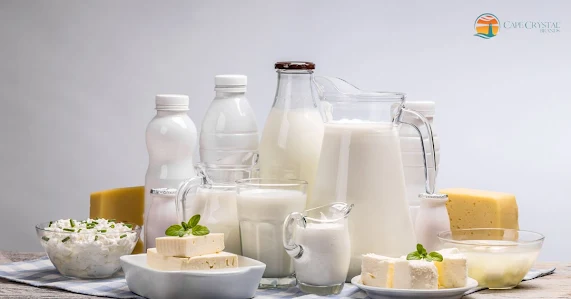Featured
- Get link
- X
- Other Apps
Do You Think Kappa Carrageenan Is Safe? Learn More
You
must have heard about Carrageenan! These are thickening and stabilizing
agents that serve as a vegan substitute for gelatine. This is extracted
from a species of red seaweed and is a carbohydrate that helps to
condense and stabilize food products. It is used as a replacement for
fat compounds in some food items. Moreover, when extracted it forms a
gel that is also used to provide textures to some items.
Three types of carrageenan are used as food additives in various liquid products as emulsifiers. Kappa carrageenan is of the three vegan thickeners extracted from two types of red seaweeds, Kappaphycus alvarezii and Kappaphycus cottonii. There have been controversies regarding the safety of the kappa-type carrageenan, let’s take a deeper dive into it.
What is the controversy?
There are two categories of carrageenan.
- Food-grade or dietary carrageenan
- Non-food grade or degraded carrageenan
The
U.S. Food and Drug Administration (FDA) have approved the use of
food-grade carrageenan in the country. Degraded carrageenan, commonly
referred to as poligeenan, is a recognized carcinogen, which is a
chemical that triggers cancer; hence its usage in food is prohibited.
Animals have long been tested for scientific purposes to confirm the cause of inflammation using poligeenan. Many researchers discovered, in certain items, poligeenan that was labeled as carrageenan, and some of it contains as much as 25% in them.
What do research studies indicate?
Researches
with animal subject testing on the harmful degree of carrageenan
indicate the use of degraded type led to acute effects like colon cancer
and gut tumors.
Results achieved from a 2017 review indicated that even food-grade Kappa carrageenan can produce inflammation and bowel issues, as its ingredients may lead to IBD or ulcers. Nevertheless, the instigator of the 2018 review could not draw any solid conclusion on the harmful effects of carrageenan on health.
Several scientists consider that even consumption of food-grade carrageenan can turn into poligeenan when it comes in contact with stomach acid.
As
a rule, no dietary carrageenan should be contaminated with over 5
percent of degraded carrageenan. But, when tested, most of the
carrageenan manufacturers’ trade group samples contained beyond the safe
level of the poligeenan.
Should you consume Kappa carrageenan-incorporated food items?
For
any connection between carrageenan and digestive issues to be
confirmed, further human research is required. You might wish to
restrict your intake of carrageenan in the interim.
This
substance is still permitted by the Food and Drug Administration. The
National Organic Standards Board, however, decided in 2016 to strike
carrageenan from its list of permitted substances.
Carrageenan-containing goods can no longer have the "USDA organic"
designation.
Anecdotal data indicates that removing carrageenan from the diet helps ease digestive issues including bloating and IBD. These assertions, however, are not based on empirical study.
There is no strong evidence, which indicates that using Kappa carrageenan can create severe health problems. Hence, using a safe one can prove less harmful, like the Cape Crystal Brands (https://www.capecrystalbrands.com/) kappa carrageenan. Our safe and top-quality carrageenan product can be used in any food item as a thickening or stabilizing agent without any concern. For more information, dial 1-908-273-5600 or email info@capecrystalbrands.com.
Popular Posts
Discover the Magic of Plant-Based Gelling Agents in Modern Cooking
- Get link
- X
- Other Apps
Reasons for the Growing Popularity of Sunflower Lecithin in the Food Industry
- Get link
- X
- Other Apps



Comments
Post a Comment